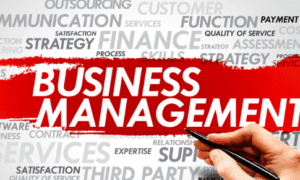In the fast-paced and dynamic world of business, one constant remains true – the success of any organization hinges on the strength of its team. Building a robust and cohesive team is not just a desirable goal; it is a crucial necessity for effective business management. In this SEO blog post, we will explore the fundamental aspects of creating and maintaining a strong team that is essential for achieving sustainable success in the competitive business landscape.
Understanding the Importance of a Strong Team
In the ever-changing business landscape, the significance of a robust team cannot be overstated. Beyond merely executing tasks, a cohesive team brings diverse skills, perspectives, and talents to the table. This synergy not only enhances productivity but also fosters a culture of innovation and adaptability, crucial for long-term success.
Recruitment Strategies for Building a Strong Team
Successful team building begins with strategic recruitment. Tailoring your recruitment strategies to align with the organization’s goals ensures that you bring in individuals who not only possess the necessary skills but also share the company’s values and vision. Leverage digital platforms, professional networks, and industry events to identify and attract top talent.
Creating a Positive Work Culture
Cultivating a positive work culture goes beyond superficial perks. It involves creating an atmosphere where employees feel a sense of purpose and belonging. Recognizing achievements, promoting a healthy work-life balance, and encouraging open communication are integral aspects of fostering a positive and engaging work environment.
Team Building Activities and Training Programs
Team building activities and continuous training are investments in your team’s growth. Retreats, workshops, and ongoing training sessions not only enhance professional skills but also contribute to team bonding. These activities create a shared experience, strengthening interpersonal relationships and promoting a collaborative spirit.
Effective Communication within the Team
Communication forms the bedrock of a successful team. Establishing clear communication channels ensures that information flows seamlessly, preventing misunderstandings and fostering a sense of unity. Regular team meetings, project updates, and open-door policies contribute to a transparent and collaborative work environment.
Leadership and Team Empowerment
Effective leadership is a cornerstone of a strong team. Leaders must inspire and empower team members to reach their full potential. Delegating responsibilities, providing constructive feedback, and fostering a sense of ownership among team members contribute to a leadership style that nurtures growth and success.
Encouraging Innovation and Creativity
A strong team is not only proficient in executing tasks but is also capable of innovative thinking and creative problem-solving. Encouraging a culture of innovation involves creating an environment where team members feel empowered to share their ideas, take calculated risks, and think outside the box. This approach fosters a spirit of creativity that can drive the organization forward.
Diversity and Inclusion in Team Building
Embracing diversity and inclusion is not just about ticking boxes; it’s a strategic advantage. A diverse team brings varied perspectives and ideas, fostering creativity and innovation. Implementing inclusive hiring practices, promoting a culture of respect, and celebrating differences contribute to the overall strength of the team.
Balancing Individual and Team Goals
While individual accomplishments are important, aligning personal goals with the overall objectives of the team is crucial. Emphasizing the significance of collective success and ensuring that individual contributions contribute to the team’s overarching goals fosters a sense of unity and shared purpose.
Sustainability and Long-Term Planning
Building a strong team is not just about immediate success; it involves long-term planning and sustainability. Developing strategies for employee retention, succession planning, and adapting to industry trends ensures that the team remains a valuable asset to the organization over the years.
Conflict Resolution and Team Dynamics
Conflict is a natural part of any team dynamic. The key lies in effective conflict resolution. Implementing strategies for constructive conflict resolution, encouraging open dialogue, and addressing issues promptly are vital for maintaining a positive team dynamic.
Recognition and Rewards
Acknowledging and rewarding team members for their contributions is a powerful motivator. Formal recognition programs, awards, and expressions of gratitude create a positive and rewarding work environment, boosting morale and fostering a sense of accomplishment.
Adapting to Change
In a business environment characterized by constant change, adaptability is a non-negotiable trait for a strong team. Encouraging a mindset of continuous learning, providing resources for skill development, and fostering a culture of agility empower the team to navigate challenges and seize opportunities effectively.
Conclusion
Building a strong team is a dynamic and ongoing process that requires a multifaceted approach. By understanding the nuances of effective recruitment, fostering a positive work culture, investing in training, promoting open communication, embracing diversity, and adapting to change, businesses can lay the foundation for a team that not only meets but exceeds expectations. As a business manager, recognizing the pivotal role of a strong team and actively engaging in its development is the key to creating an organization that thrives in the face of challenges and achieves sustained success in the long run.



































